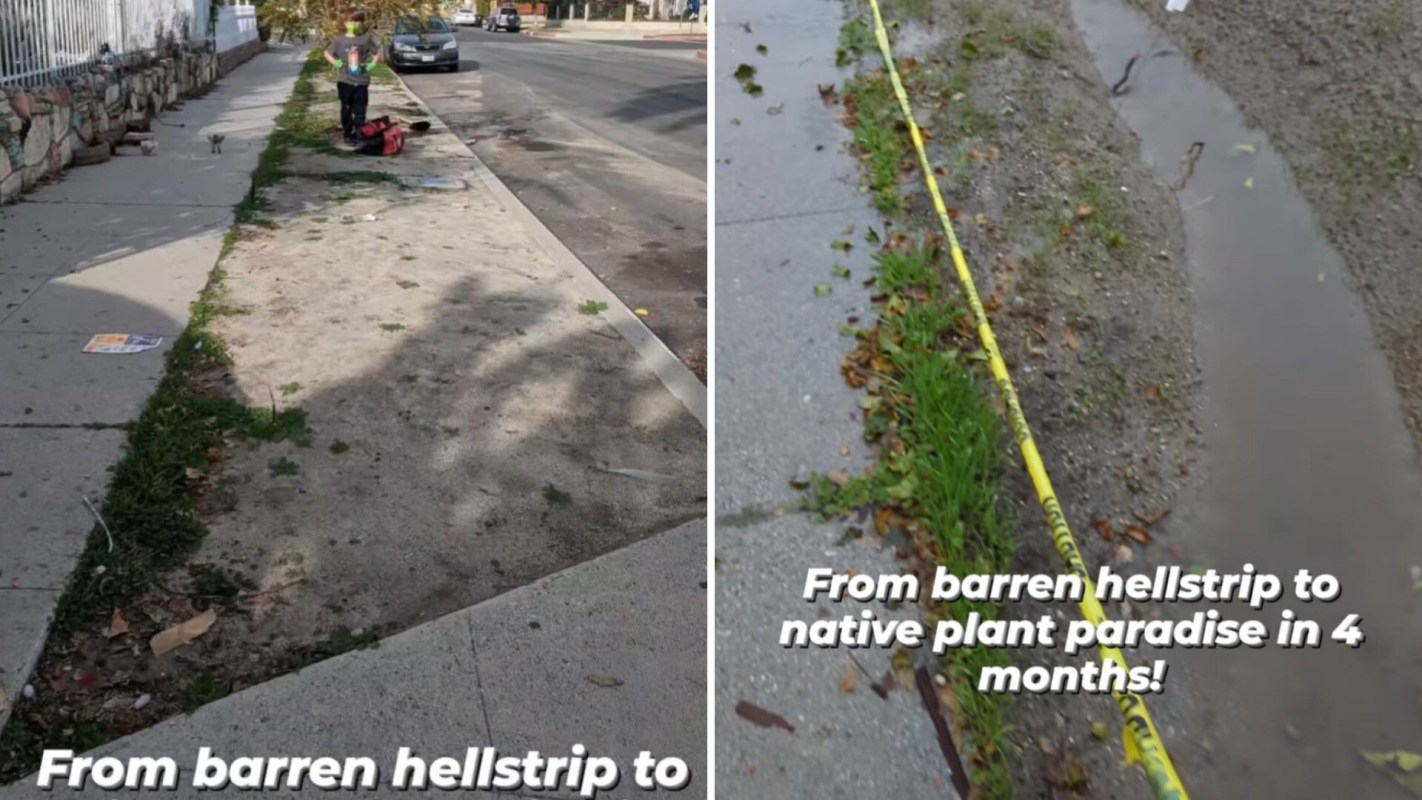Regardless of whether you live in a city or a smaller town, you've still probably seen neglected and littered patches of dirt around. But as this viral video shows, those patches can go from "barren hellstrips" to "native plant paradises" in as little as four months.
The video was posted on Instagram by The Solarpunk Farmer, and urban agroecologist who says he's "living & learning" on Tongva land — the native land of the Tongva People, who inhabited (and still inhabit today) the 4,000+ square mile region also known as the Greater Los Angeles Basin.
In the video, we see a neglected patch of dirt — that "barren hellscape" surrounded by pavement — bloom into a home for wildflowers native to the area. The reel description said the seeds used were from Nicholas Hummingbird and @california_native_plants.
And given the lot's dramatic and beautiful turnaround, the post has now racked up over 8,000 likes.
Around the country and world, people have been noting the importance of cultivating more garden spaces for everything from food, beautification, health, and a sense of place and community.
Especially in urban environments, there's a long history of "seed bombing" — throwing little balls of compost, clay, and seeds into neglected public spaces to make them bloom again. An important historical figure in this movement was Hattie Carthan, who, in the 1960s, noticed Bedstuy, Brooklyn, "didn't have enough trees."
She and her community members connected this issue to racist redlining practices, which made for less habitable, beautiful, and sustainable neighborhoods. To combat their living conditions, she and countless other "radical gardeners" formed groups to seed bomb derelict lots, pick up trash, and form community gardens.
This video, using native seeds, seems to be another act in a long tradition of radical and necessary urban gardening.
Commenters chimed in to praise the transformation.
"Thank you!!!" wrote one. "We must keep building these native pollinator pit stops for bees, butterflies, and ultimately all wildlife biodiversity!"
"Love it love it love it," said another.
Join our free newsletter for easy tips to save more, waste less, and help yourself while helping the planet.









